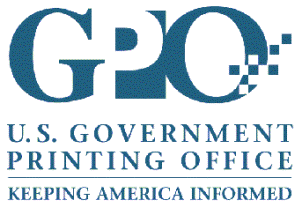 Davita Vance-Cooks, the acting public printer for the U.S. Government Printing Office (GPO), yesterday testified before the House Subcommittee on Legislative Branch Appropriations regarding the impact that the federal budget sequester will have on the agency if it goes into effect on Friday, March 1.
Davita Vance-Cooks, the acting public printer for the U.S. Government Printing Office (GPO), yesterday testified before the House Subcommittee on Legislative Branch Appropriations regarding the impact that the federal budget sequester will have on the agency if it goes into effect on Friday, March 1.
The GPO will have its appropriations budget cut by 5.3%, or approximately $6.7 million, according to an agency announcement. In addition, the GPO is expecting that the sequester will force other federal agencies to cut back on ordering printing and information services from the GPO, which would also lower the agency’s revenue. To offset these reductions, GPO will have to freeze hiring, overtime, performance awards, outside training, administrative travel, nonessential maintenance and repairs, and cut back on other investments, delaying the development of digital products, technology upgrades, and other projects aimed at improving public access to government information.
“Regardless of budget constraints, GPO is committed to serving as the digital information platform and provider of secure credentials for the Federal Government,” Vance-Cooks said during her testimony. “GPO is prepared to make the necessary cutbacks in order to continue to carry out its mission of Keeping America Informed.”
Separately, representatives from the Institute of Museum and Library Services told LJ that the sequester may cut their funding by an estimated 5 percent.
“The final percentage won’t be calculated until Friday, but if it remains at the planning level of a 5% cut, our bottom line will be $221.7 million,” Giuliana Bullard, public affairs specialist for IMLS wrote in an e-mail. This would be an $11.6 million decrease from the Institute’s current budget of $233.3 million.
Congressional leaders have been unable to come to a compromise that would avert the automatic budget sequestration, which will cut $1.2 trillion in federal spending from 2013 to 2021. This year, cuts would include $42.7 billion in the defense budget and almost $28.7 billion in domestic discretionary spending, including a $1.6 billion cut to the National Institutes of Health, a $406 million cut to Head Start, an $840 million cut to special education programs, a $388 million cut to the National Science Foundation, and a $31 million cut to the Library of Congress, according to an analysis by the Washington Post.